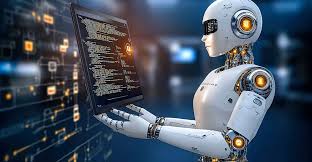
Is Performance Marketing a lie?
- Sep 27, 2024
- 0

Artificial Intelligence is no longer a buzzword. It’s not just powering futuristic robots or Silicon Valley experiments—it’s driving decisions, productivity, and innovation in everyday businesses.
In 2025, AI technology has moved from research labs to boardrooms, customer service desks, marketing campaigns, and even your mobile device.
At its core, AI (Artificial Intelligence) refers to machines or systems that can perform tasks that typically require human intelligence—like understanding language, recognizing patterns, making decisions, and learning from data.
Today’s AI includes:
Natural Language Processing (NLP) — understanding and generating human language (e.g., ChatGPT)
Machine Learning (ML) — algorithms that improve with experience
Computer Vision — interpreting visual information (e.g., facial recognition)
Generative AI — creating new content like text, images, or code (e.g., Sora, DALL·E, GitHub Copilot)
Automating repetitive tasks (e.g., data entry, invoice processing)
Forecasting demand with higher accuracy
Enhancing cybersecurity through anomaly detection
Hyper-personalized ads based on behavior and intent
AI copywriters and image generators
Predictive analytics to optimize campaigns
Diagnosing diseases from X-rays and scans
Virtual health assistants
Drug discovery powered by AI simulations
Smart chatbots that resolve 80%+ of queries
Voice assistants integrated with CRMs
Real-time language translation for global customers
Design iterations based on user feedback
Rapid prototyping through generative design
A/B testing variants created by algorithms
Speed: Analyze massive datasets in seconds
Accuracy: Reduce human error in critical decisions
Efficiency: Automate mundane work to focus on strategy
Scale: Serve more customers without adding overhead
Innovation: Unlock new ways to create, sell, and solve problems
Bias in algorithms if not trained on diverse data
Privacy concerns over data collection
Job displacement in some sectors
Overdependence on black-box systems
Smart adoption = balancing efficiency with ethics.